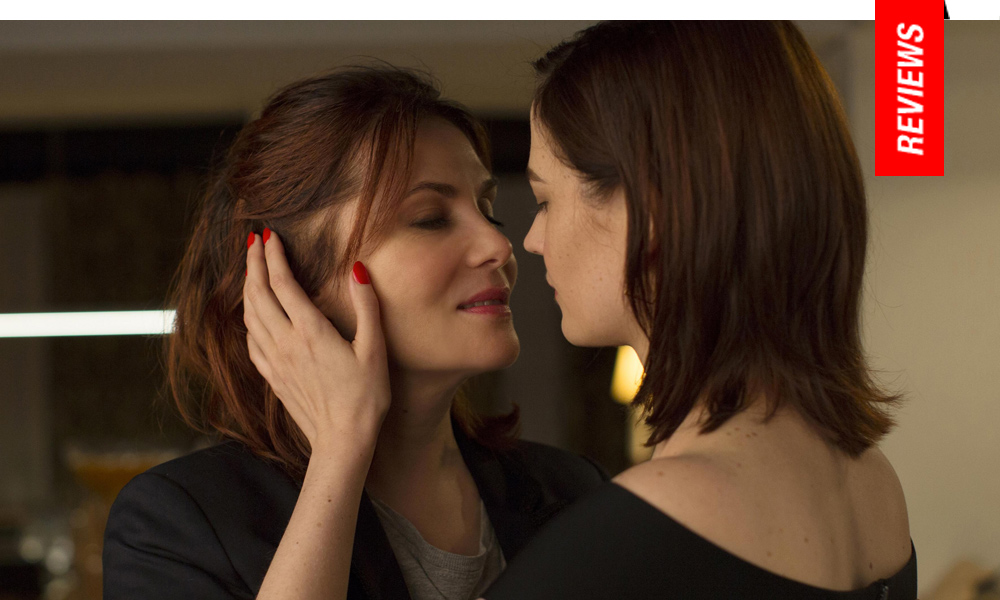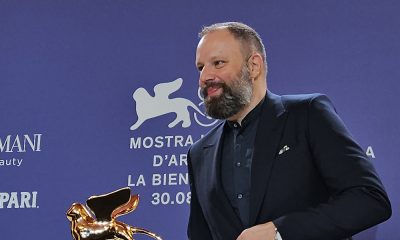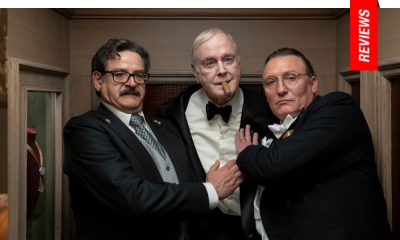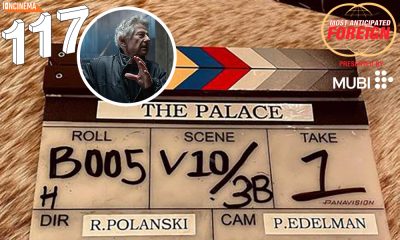Based on a True Story | 2017 Cannes Film Festival Review
Hider in Her Head: Polanski Mines a Dull Playing Field with Psychological Thriller
The promising conceptualization of Roman Polanski directing a femme centric psychological thriller penned by Olivier Assayas is rather short-lived in the monotonously conveyed Based on a True Story, which is neither true nor pulpy enough to warrant the suggested intrigue of its title. Assayas canvases familiar themes in this tale about an author whose sudden fame brings unexpected emotional duress as well as the attentions of an aggressive admirer whose welcome assistance soon becomes dangerously parasitic. Despite featuring Polanski’s wife, the usually adept Emmanuelle Seigner, alongside the kooky capabilities of an unhinged Eva Green, the whole endeavor feels like a squandered opportunity for such a collaboration. With a running time at least a half hour too long, this glacially paced non-sequitur actively defies the sort of campy elements which could have made this fun, or even a potential guilty pleasure.
Delphine (Emmanuelle Seigner) finds herself overwhelmed by the response to her last novel, which has proven to be a big breakthrough. Exhausted by the constant expectations associated with fame, the experience has caused writer’s block on the new novel she’s been researching. Unable to find solace in her incredibly busy husband Francois (Vincent Perez), the arrival of Elle (Eva Green) seems to be the safeguard she needs from her own insecurities. But Elle, a woman who serves as a ghost writer for a number of high profile clients, seems to have ulterior motives in her friendship with eve.
Like the comparisons his 2014 title Clouds of Sils Maria courted with Bergman’s Persona (1966), Assayas continues his trend of dueling female personalities on the verge of being absorbed or subsumed. Initially, the construction of Seigner’s character is an intriguing exercise in writerly anxiety, a woman who has received sudden fame for a controversial novel based on salacious instances from her familial history, which leaves her to wonder if she is talented enough to formulate another original idea. Tackling the parameters of reality television, her gnawing anxiety leads to writer’s block, staring blankly at the glowing laptop screen which seems to definer her own internal tabula rasa, even leading to her own admission of ‘transparency.’ A mightily persuasive score from Alexander Desplat makes empty promises of the non-action to follow, including slight notes of Tchaikovsky when Eva Green’s black swan/harpy mysteriously injects herself into Delphine’s realm. Named Elle (which unfortunately will draw associations to the far superior Verhoeven film), Green is appropriately cast as an unnervingly unbalanced femme fatale, whose withering glances and formidable sneers draw pangs of discomfort alongside amusing titters.
However, it’s soon apparent we’re never to learn anything concrete about Elle, much less, why she desires to consume Delphine outside of the basic shades of jealousy pertaining to her own profession as a ghost writer (which draws amusing parallels to Polanski’s 2010 thriller The Ghost Writer). But the dynamic of the women abandons any similarities with someone like Bergman and instead plays like a watered down version of Stephen King’s Misery (1990) mixed with shades of Barbet Schroeder’s Single White Female (1992), with Elle’s evils so joltingly apparent it only makes Seigner’s character seem unnecessarily insipid.
Rather than playing up Delphine’s subconscious desires to be controlled, conquered, and abused, she instead seems like a daffy scion of privilege trapped in an unenthusiastic marriage to a literary television show host played unremarkably by Vincent Perez (although an entertaining name-dropping sequence of the authors on his American book tour coughs up some laughs).
What could have been a subversive genre exercise on female authorship and agency becomes a tedious slog of repeated phrases (if we had to hear about Delphine’s ‘hidden novel’ just one more time…) and predictable patterns. To see Seigner in a similar vein, playing a pop star who is assailed by an obsessive fan (Isild Le Besco), a more worthwhile venture is Emmanuelle Bercot’s 2005 Back Stage.
Reviewed on May 27th at the 2017 Cannes Film Festival – Out-of-Competition. 110 Mins.
Los Angeles based Nicholas Bell is IONCINEMA.com's Chief Film Critic and covers film festivals such as Sundance, Berlin, Cannes and TIFF. He is part of the critic groups on Rotten Tomatoes, The Los Angeles Film Critics Association (LAFCA), the Online Film Critics Society (OFCS) and GALECA. His top 3 for 2021: France (Bruno Dumont), Passing (Rebecca Hall) and Nightmare Alley (Guillermo Del Toro). He was a jury member at the 2019 Cleveland International Film Festival.






























